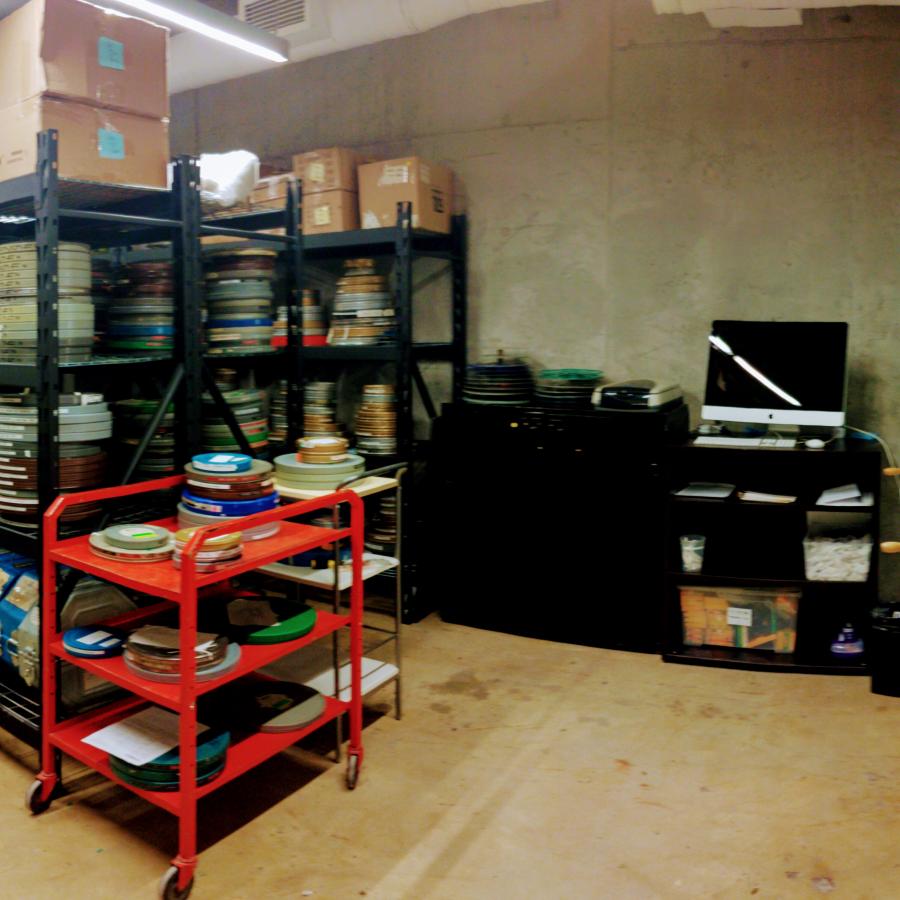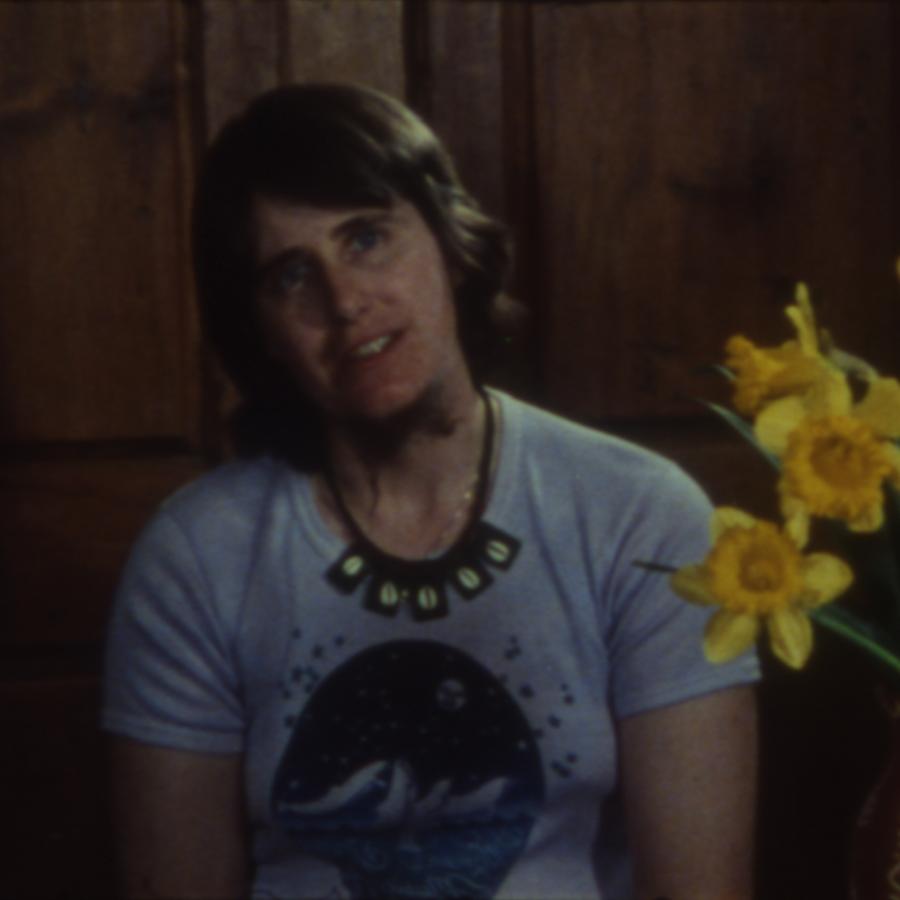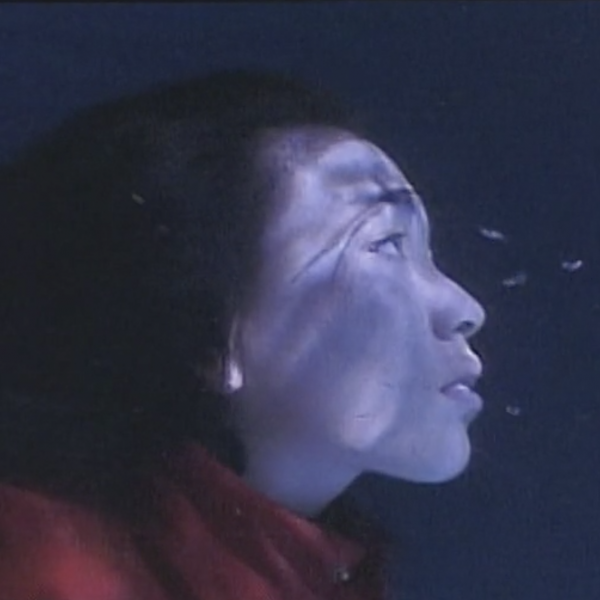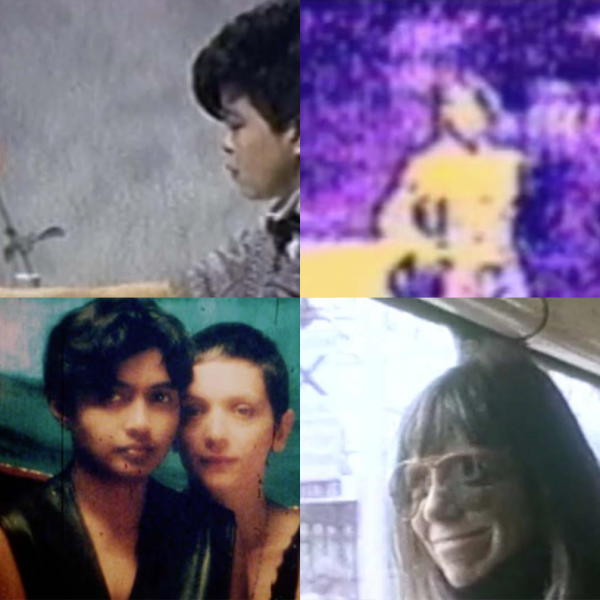The Canadian Filmmakers Distribution Centre (CFMDC) Case Study focuses on key Canadian LGBT2Q films made between the mid-1970s and the early 2000s that lay dormant in our collection. We are exploring this time period due to its current inaccessibility; queer works in the collection from this period exist solely on celluloid or outdated video formats. This reflects the influx of affordable technology that became available to queer artists beginning with more economical film equipment, and then to a greater extent in the 80s and 90s with video technology. The rapid obsolescence of these formats in the early 2000s, however, has made this era of our LGBT2Q collection elusive to scholars, programmers and the public. Nearly 100 titles (over 30 hours) concentrated between 1984–2000 are being digitized from their original format for the first time through this case study.
With the assistance of A/CA partnership organizations and our in-house technical services, we have already digitized 32 titles comprising over 550 minutes of Canadian LGBT2Q films and related paper ephemera (correspondence, scripts, photographs, etc.). Ryerson’s Film Preservation and Collections Management MA program has been a key partnership in facilitating digitization of the case study films, with Research Assistants conducting film inspections, outreach, digitization, and evaluating film priority based on material obsolescence and historical value. CFMDC has co-presented a number of film screenings, including a year-long series with EMILIA-AMALIA, a curated program by performance and video artist Mikiki (co-presented with Queer Media Database), and annual screenings curated by Film Preservation students at Ryerson University.
Going forward, the CFMDC case study will help support further research and artistic collaboration, digitize 20+ hours of at-risk content, create internal archival policy and guidelines regarding the digitization and cataloguing of LGBT2Q works, and program virtual screenings of newly digitized films from the collection (dates to be announced). We continue to collaborate with the Queer Media Database and the Transgender Media Portal, working with post-doctoral researchers to improve public documentation of LGBT2Q filmmakers and films in the CFMDC collection.
Research Questions:
- How will these films open up the ways in which the LGBT2Q community historicizes themselves in the era of technology and retroviral drugs?
- What do these films reveal about LGBT2Q histories that extend beyond the narrative of HIV/AIDS memorialization or queer confessional films?
- How were female-identified filmmakers in Canada representing LGBTQ2S+ identities on-screen during this period?
- What do these films reveal about LGBT2Q resistance?
Priority Areas:
- Safeguarding celluloid film for continued research, distribution and exhibition
- Digitizing to reduce wear and tear, reduce barriers of access, and develop audiences
- Creating lasting partnerships with organizations, scholars, and future researchers
- Participating in the development of policy and best practices for community archives and meta-data
Outcomes:
- Policy development for the preservation of Canadian moving arts heritage
- Educational programming and new audience development for Canadian LGBT2Q film and for works on celluloid
- Expanding the history of LGBT2Q communities and the inclusion of voices through oral history interviews
- The creation of new work by commissioned artists and researchers
Update from the CFMDC Case Study:
The CFMDC Case Study officially launched in April 2020, coinciding almost exactly with the onset of the global COVID-19 pandemic. The timing significantly impacted our original intentions for the project, particularly our ability to host in-person research visits, engage students directly, and present public programming. With the restrictions in place, we shifted our focus toward digitization efforts, prioritizing access and circulation of key Canadian LGBT2Q works from the mid-1970s to early 2000s. Given CFMDC’s role as a distribution organization, we made the strategic decision to center our efforts on making the collection accessible for future curatorial, academic, and artistic engagement. By ensuring the preservation and digital availability of these works, we aligned with the core aim of the case study: to support the continued mobilization and cultural relevance of these historically underrepresented titles.
As in-person activities slowly resumed, we saw a surge in engagement and output during the final two years of the project. We were able to expand the initiative to include the creation of four educational guides, each exploring the collection through a distinct lens—broadening access for educators, students, and researchers. These guides feature newly commissioned essays by scholars, filmmakers, and curators, offering critical inroads into the CFMDC’s extensive queer holdings. This period also saw increased collaboration with our academic and archival partners, further deepening the reach and impact of the project. While this phase of the case study comes to a close, the groundwork laid—over thirty hours of digitized content, expanded documentation, and new curatorial tools—will continue to support research, education, and programming efforts, ensuring these once inaccessible works remain active, relevant, and available for future generations.
We formally closed the active portion of the CFMDC Case Study with a screening of Airplane Confessional, a program curated by artist-in-residence and CFMDC’s Programs and Collections Coordinator, Aaditya Aggarwal. The screening brought together newly digitized titles and thematically resonant works from the collection, creating a dialogue between past and present experimental media. This thoughtful, intergenerational program exemplified the spirit of the CFMDC Case Study—honouring historical works while activating them for contemporary audiences. Looking ahead, Executive Director Genne Speers will contribute a reflective piece on the project’s evolution and impact to the forthcoming publication Archive/Counter-Archive: Activating Histories Across Media and Communities, helping to contextualize CFMDC’s approach within broader conversations around access, preservation, and queer archival practice.
About CFMDC
Established in 1967, CFMDC is a not-for-profit, non-commercial media arts distributor that specializes in independent, artist made work on film and video including works from historically underrepresented communities. We advocate for a holistic understanding of production, distribution and exhibition that prioritizes artist rights, accessibility and the creation of new audiences through education and critical thinking. We have one of the most important collections of artist-made moving image on film in Canada and have recently moved into a facility with a specially designed space for our 16mm, 35mm and (s)8mm collection.
Values
- Artists should be paid for their work
- Art drives change, challenges conventions and transforms lives
- Advocate for critical space outside the mainstream for artists’ works
- Advocate for voices rooted in community that disrupt dominant discourses
- Explore opportunities to build community, encourage dialogue and reach new audiences
Land Acknowledgement
Our territorial acknowledgment is meant to stand as a first step towards reflecting on our existence on stolen lands and our commitment to better understanding the complex and varied histories of this land, the territories of the Anishinaabe, the Mississaugas of the Credit, the Haudensosaunee, the Huron-Wendat, the Cree and any other Nation who cared for the land (acknowledged and unacknowledged, recorded and unrecorded).
We accept that acknowledgment in this way doesn’t end here and is a living statement open to discussion and change. We intend this Territorial Acknowledgement to demonstrate our commitment to continued awareness, reflection, and establishing reciprocal relations. Therefore, we do not intend this statement to signify closure and acceptance of the continued structural conditions of settler colonialism.
The daily work of CFMDC takes place in Toronto which is covered by Treaty 13, a treaty signed with the Mississaugas of the Credit, and the Williams Treaty signed with multiple Mississaugas and Chippewa bands. We also acknowledge the ‘Dish’ With One Spoon treaty that covers the land of what is now called southern Ontario and is between the Anishinaabe and Haudenosaunee.
We also acknowledge the Treaty of Niagara as a founding moment of constitutional relations between Indigenous Nations and the colonial Nation as an important part of Canada’s history and should be respected as part of a Nation to Nation relationship
We reference these recent treaties and agreements of this land that is today called Toronto to acknowledge the responsibility of settlers. Importantly, we remain cognizant that the history of Indigenous peoples on Turtle Island is thousands of years old and that communities and territories extend beyond colonial legal boundaries and that there were systems of sharing and negotiations between nations through their own diplomatic and legal systems.
This acknowledgment is a first step in the ongoing process of decolonization. Compelling us, our settler colonial members and community members, to further understand our obligations to the Nations of these territories and the concrete treaties that are part of the long history on Turtle Island.
Today, the meeting place of Toronto is still the home to many Indigenous people from across Turtle Island and we are grateful to have the opportunity to work in the community and on this territory.
As part of CFMDC’s participation in the Archive/Counter-Archive project we will work in the spirit of the 94 Calls to Action from the Truth and Reconciliation Report; Particularly Recommendations for Museums and Archives and Recommendations for Media and Reconciliation. We also work with the knowledge of the importance of recognition of the UN Declaration on the Rights of Indigenous Peoples. And as a media arts organization and member of the Independent Media Arts Alliance (IMAA) we would like to acknowledge and support the incredible work of National Indigenous Media Arts Coalition (NIMAC).
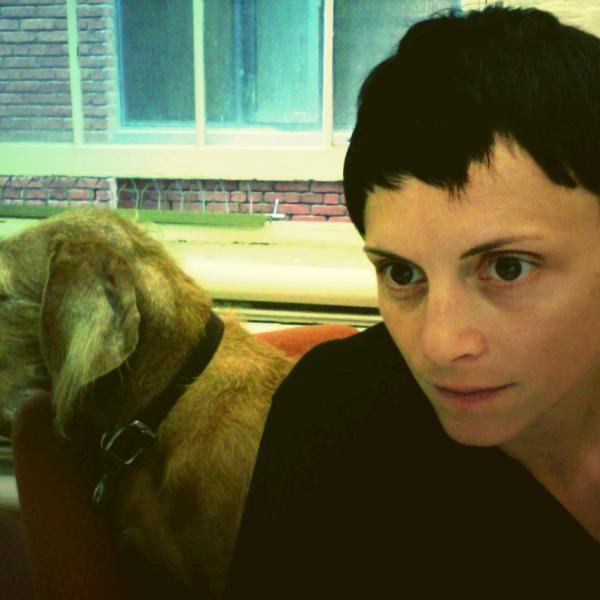
Genne Speers
Genne Speers is the Deputy Director of the CFMDC, one of Canada’s oldest artist run centres founded in 1967. The CFMDC is one of four member organizations of TMAC (Toronto Media Arts Centre). She is an advisory member of the TMAC board and serves on the boards of the Media Arts Network of Ontario and the Independent Media Arts Alliance. Genne holds a Masters of Cinema and Film Archiving from the University of East Anglia and is a PhD Candidate in Cinema and Media Studies at York University. Her current research concerns aerial images of violence and the interpretation and translation of instrumental aerial images within the context of the archive.

Jesse Brossoit
Jesse Brossoit holds a Master of Arts in Film Preservation and Collections Management from Ryerson University. He has previously worked on cataloguing and archiving film collections for the Art Gallery of Ontario and the Liaison of Independent Filmmakers of Toronto, and is currently the Distribution Coordinator for CFMDC.

Laura Horak
Laura Horak investigates the history of transgender and gender-nonconforming film and media in the United States and Canada, and the history of sexuality in U.S. and Scandinavian cinema. Supported by a SSHRC Insight Development Grant, Horak is researching the history of trans, Two-Spirit, and gender-nonconforming filmmaking in Canada and the United States, and creating a pilot online database to promote these filmmakers.
She is author of Girls Will Be Boys: Cross-Dressed Women, Lesbians, and American Cinema, 1908-1934 (Rutgers University Press, 2016), co-editor of Silent Cinema and the Politics of Space (Indiana University Press, 2014), and Unwatchable (Rutgers University Press, January 2019). She also co-edited a special issue of Somatechnics on trans cinematic bodies. She regularly curates film screenings in Canada, Europe, and the United States.
Julianne Pidduck
Julianne Pidduck is associate professor in the Communication department at the Université de Montréal. Her research explores representations of gender and sexuality through the moving image, and more broadly across mediated public discourse. Author of Contemporary Costume Film (2004), she has published widely in Canadian and international academic journals. Her current project, Shadowplay and Afterimages, examines LGBTQ2+ produced film, video, and photography in Montréal from the 1950s until the 1990s as an archive of LGBTQ2+ lives and experience. As part of this project, she recently edited a special section of the online journal Jump Cut, returning to mythic Quebec filmmaker Claude Jutra in light of the 2016 allegations of pedophilia. Member of the core group of Queer Media Database Canada-Québec Project, she is presently co-curating an installation exploring 1970s Montréal lesbian bar culture and social life entitled, After Hours at Madame Arthur, to take place at Montréal’s Never Apart Centre from June-September 2019.
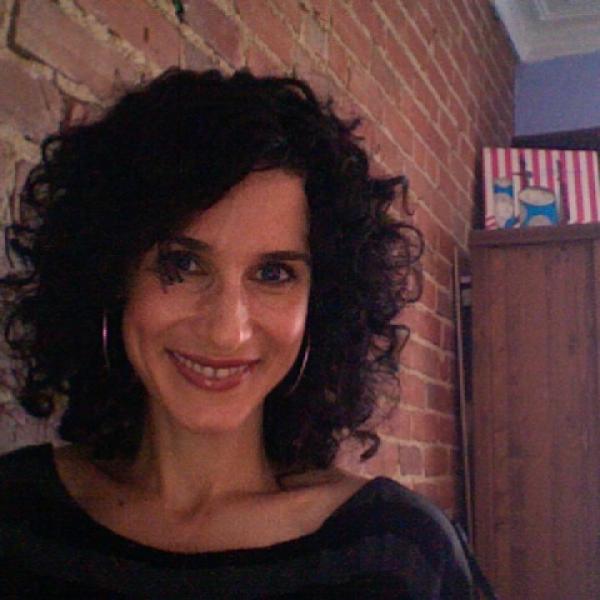
Alanna Thain
Alanna Thain is a professor of Cultural Studies and World Cinemas at McGill University, where she directs the Moving Image Research Laboratory and the Institute for Gender, Sexuality, and Feminist Studies. She is the author of Bodies in Suspense: Time and Affect in Cinema (University of Minnesota Press, 2017). Her current research includes Anarchival Outbursts on dance and the movement practices of post-digital cinema, and Cinema Out of the Box, a research-creation project around a mobile, bike powered cinema, and the global trend of outdoor cinemas.

Antoine Damiens
Antoine Damiens is a FRQSC Postdoctoral Fellow at McGill University. In 2018, he obtained a PhD in Film and Moving Image Studies from Concordia University. His first book, "LGBTQ Film Festivals: Curating Queerness," was recently published with Amsterdam University Press (2020). He is currently working on a short book on Cyril Collard's 1992 HIV/AIDS film Les nuits fauves (with McGill Queen's University Press). Antoine acts as co-chair for the Feminist and Queer Research Workgroup within the European Network for Cinema and Media Studies (NECS) and as co-editor for the Film Festivals Reviews section of the journal NECSUS.
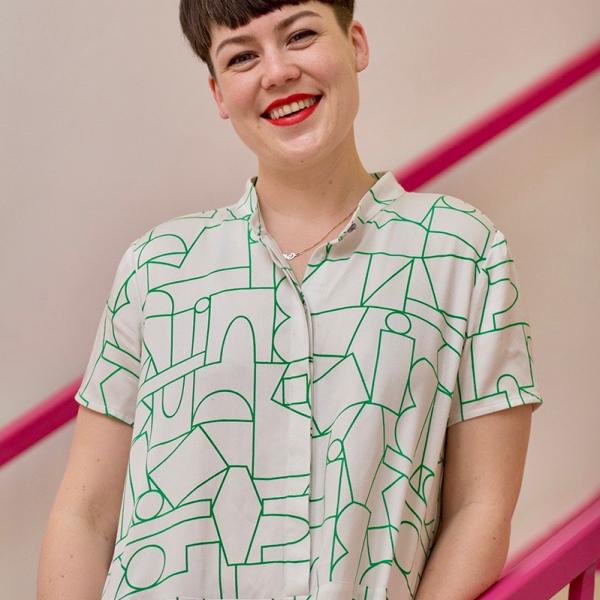
Genevieve Flavelle
Genevieve Flavelle is an independent curator and PhD student in the Art History program at Queen’s University. She is a white settler of Scottish and French ancestry raised and currently living in Tkaronto/Toronto. Her doctoral research investigates the work of contemporary visual artists who are challenging traditional forms of historical research to give voice to underrepresented, forgotten, or imagined histories. Her broader research and curatorial interests include queer theory, queer feminist art histories, contemporary art, archives, public art, and feminist curatorial strategies. She holds an MA from Western University and a BA from NSCAD University, both in Art History. She has curated exhibitions at Modern Fuel Artist-Run Centre (Kingston, ON), Younger Than Beyonce Gallery (Toronto, ON), The Khyber (Halifax, NS), and the Anna Leonowens Gallery (Halifax, NS). She has also held the positions of Operation Director at Modern Fuel Artist-Run Centre and Programming Assistant at Eyelevel Gallery. Her writing has appeared in C Magazine, BlackFlash, Esse, and various exhibition catalogues.



